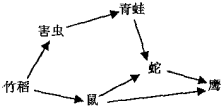The estimates of the numbers of home-schooled children vary widely. The U. S. Department 0f Education estimates there are 250, 000 to 350, 000 home-schooled children in the country. 4tome-school advocates put the number much higher at about a million.
Many public school advocates take a harsh attitude toward home schoolers perceiving their actions as the ultimate slap for public education and a damaging move for the children. 46) Home schoolers harbor few kind words for public schools, charging shortcomings that range from lack of religious perspective in the curriculum to a herdlike approach to teaching children.
47) Yet, as public school officials realize they stand little to gain by remaining hostile to the home-school population, and as"home schoolers realize they can reap benefits from public schools, these hard lines seem to be softening a bit. Public schools and home schoolers have moved closer to tolerance and, in some cases, even cooperation.
Says John Marshall, an education official, "We are becoming relatively tolerant of’home schoolers." The idea is: "Let’s give the kids access to publid school so they’ll see it’s not as terrible as they’ve been told, and they’ll want to come back."
Perhaps, but don’t count on it, say home-school advocates. 48) Home schoolers oppose the system because they have p convictions that their approach to education -- whether fueled by religious enthusiasm or the individual child’s interests and natural pace, is best.
"The bulk of home schoolers just want to be left alone," says Enge Cannon, associate director of the National Center for Home Education. She says home schoolers choose that path for a variety of reasons, but religion plays a role 85 percent of the time.
Professor Van Galen breaks home schoolers into two groups. 49) Some home schoolers want their children to learn not only traditional subject matter but also strict religious doctrine and a conservative political and social perspective. Not incidentally, they also want their children to learn, both intellectually and emotionally, that the family is the most important institution in
society.
Other home schoolers contend "not so much that the schoolers teach heresy (异教), but that schoolers teach whatever they teach inappropriately," Van Galen writes. 50) "These parents are highly independent and strive to“take responsibility" for their own lives within a society that they define as bureaucratic and inefficient.”
46) Home schoolers harbor few kind words for public schools, charging shortcomings that range from lack of religious perspective in the curriculum to a herdlike approach to teaching children.

